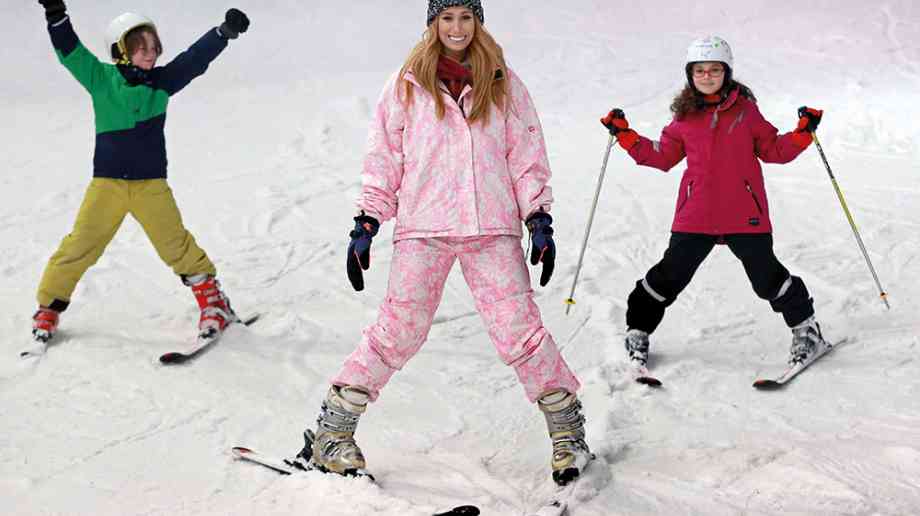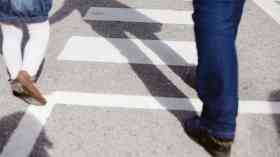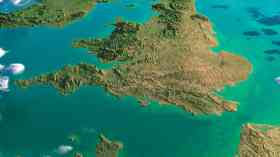
Igniting the love for snowsports
With both physical and mental health benefits for young people, more schools should introduce their pupils to snowsports, writes Betony Garner from Snowsport England.
Last winter skiing and snowboarding’s national governing body, Snowsport England, ran their inaugural National School Snowsport Week, aimed at encouraging more schools to engage in wintersports. Over 149 schools got involved across the country, and for the first event of its kind, it was deemed a success.
What is maybe surprising is that this was the first time this type of wintersports week has been organised for schools in the UK. Skiing has always captured the imagination of teachers and pupils alike, and back in the 1980s school skiing trips were in their boom period, with thousands of schools taking pupils to the Alps or even further afield.
Things have changed in recent years, however, as less schools have been organising overseas ski weeks, but at the same time there has been a rise in the indoor snow centres and a rejuvenation of outdoor dry slopes. This has meant many more opportunities for schools to do trips for a ski day or half day in the UK, or even mix it up with other fun winter activities such as tobogganing and luge. In fact, many of the indoor centres have become busier in the spring term as schools send pupils to the ski centres for their spring term activity days.
An addictive sport
Skiing and snowboarding have always been labeled as two of the most addictive sports around, and both have many benefits for young people. As non‑traditional sports, skiing and snowboarding have been proven to appeal to children who don’t see themselves as ‘sportspeople’ and shy away from traditional sports. There is a lifestyle element attached to snowsports, and with the rise of snowboarding and freestyle skiing, both are seen as trendy sports.
Not only are skiing and snowboarding cool, they both have huge health and fitness benefits and are suitable for a range of skill level. Firstly, they get children off the sofa and moving and both are good for cardio-vascular fitness, flexibility, balance and strength.
Skiing and snowboarding are good for strengthening lower body muscles. Because skiing puts you in a constant squat position, it works your inner and outer thighs, hamstrings, quads and glutes. You will be too focused on the slope in front of you to notice your legs working.
Skiing and snowboarding also increases cardiovascular endurance. As an aerobic endurance activity, skiing can help an individual get fit. Beginners can also get a good cardiovascular exercise by working the heart and lungs from walking up the slope rather than using the ski lift.
What’s more, skiing builds flexibility which will help you avoid muscle strains and sprains.
Skiing and snowboarding involves quite a bit of balance and coordination, and you must be conscious of the movements and positions of your body if you want to ski well and stay on your feet. Because you are constantly working to stay balanced while skiing, you core is engaged at all times.
What’s more, skiing not only boosts overall happiness and well-being, but it is beneficial to an individual’s physical and mental health, despite the frequency or duration of the activity.
The UK is now home to six indoor snow centres, in Glasgow, Castleford (near Leeds), Manchester, Hemel Hempstead, Milton Keynes and Tamoworth, as well as hundreds of dry slopes scattered across the UK.
Other benefits
So apart from the health benefits of skiing and snowboarding, why would a pupil consider giving them a go? Firstly, they are great fun. They get you moving, recharge your batteries and invigorate your well-being. There is nothing to compare to the exhilaration you’ll feel when sliding down the slopes.
Snowsports are also very social. What better way to bond with friends than by enjoying shared experiences? They also help you to meet new people as school ski trips often produce new relationships between pupils.
Skiing allows you to learn and experience something new.
Skiing or snowboarding in the UK is not expensive as you may think, and many dry slopes offer sessions from as little as £5. You can also rent all the equipment at the slope and some centres even have ski clothing you can hire.
Snowsport week
In April 2017, Snowsport England will run their second National Schools Snowsport Week offering affordable sessions and taster lessons for schools at local slopes during the week. Running from 24-30 April 2017, the scheme is backed by four big names of winter sports; Eddie the Eagle Edwards, BBC Ski Sunday presenter and Winter Olympian Graham Bell, British Alpine skier Dave Ryding and GB snowboarder Aimee Fuller.
The headline supporter of the week is Eddie ‘The Eagle’ Edwards who famously competed for Great Britain in the Calgary Olympic Games in Ski Jumping. Eddie ‘The Eagle’ explained why he had decided to get involved: “I am a huge supporter of grass roots skiing and snowboarding and think that taking up skiing when you are at school is the perfect time to catch the bug. I started skiing when I was 13 and have lived and breathed it for my whole life.”
During National Schools Snowsport week, there will be various different activities on offer at all of the participating schools, with schools able to send whole classes, whole year groups, or even just a handful of students. All will be at affordable prices, with some slopes offering free taster sessions.
Further information
www.nssw.co.uk
Latest News
19/12/2025 - 09:54
The Education Committee has expanded its ongoing inquiry into the early years sector to examine how safeguarding can be strengthened in early years settings.
18/12/2025 - 09:25
The UK will be rejoining the Erasmus programme in 2027, following a package of agreements with the EU.
17/12/2025 - 09:31
Ofqual has fined exam board Pearson more than £2 million in total for serious breaches in three separate cases between 2019 and 2023 which collectively affected tens of thousands of students.
16/12/2025 - 09:19
The average funding rates will increase by 4.3% for under 2s, and by almost 5% for 3-and-4-year-olds.
15/12/2025 - 10:30
Local colleges are set to receive £570 million in government funding to expand training facilities in areas such as construction and engineering.







